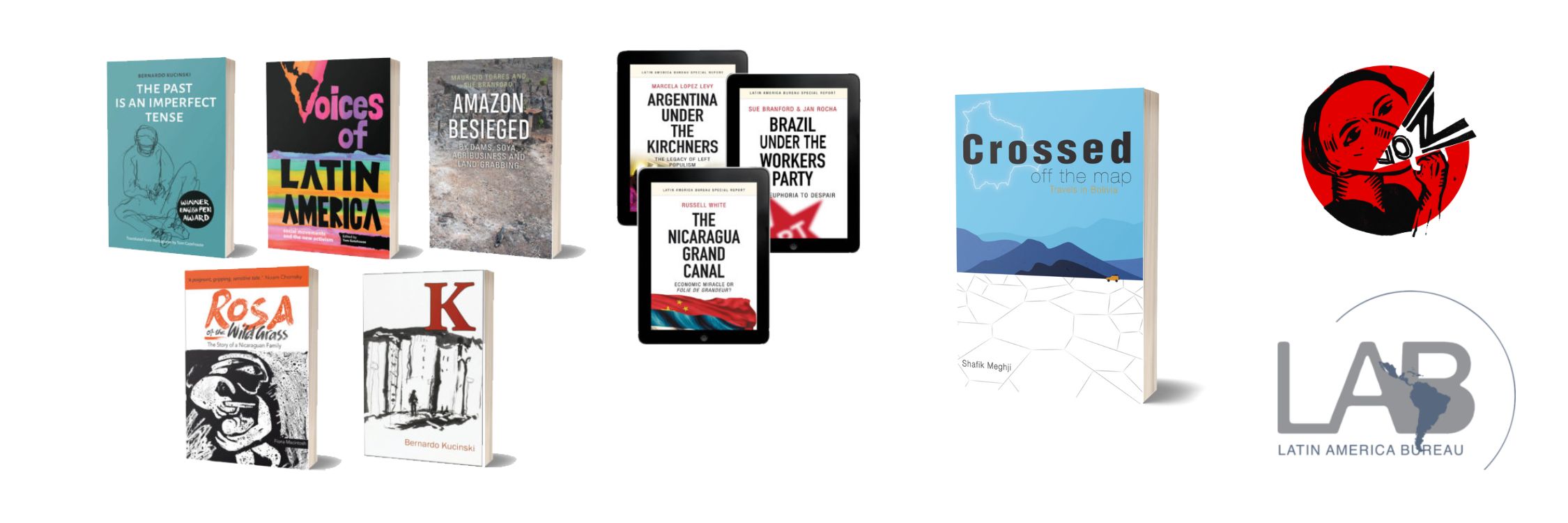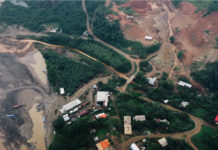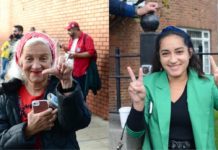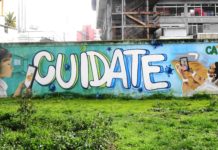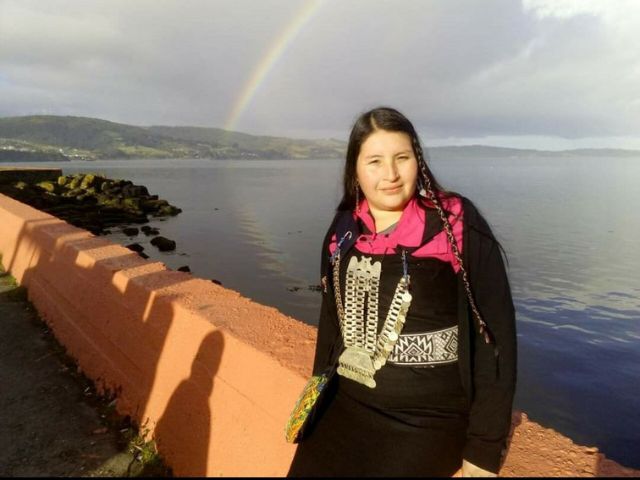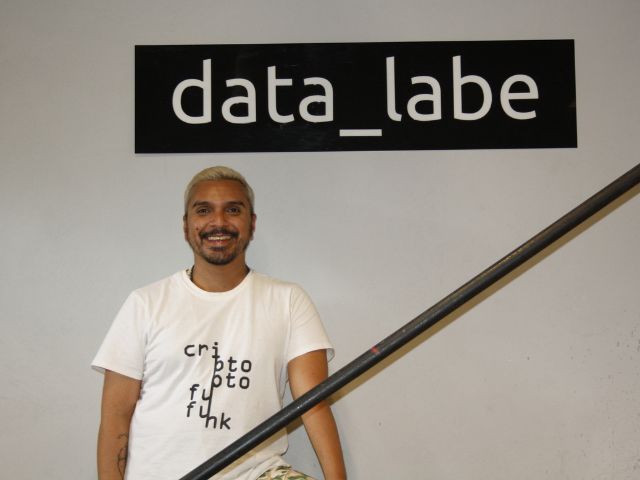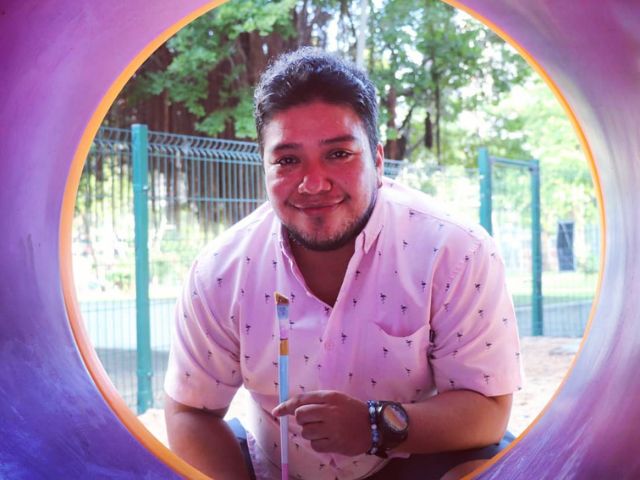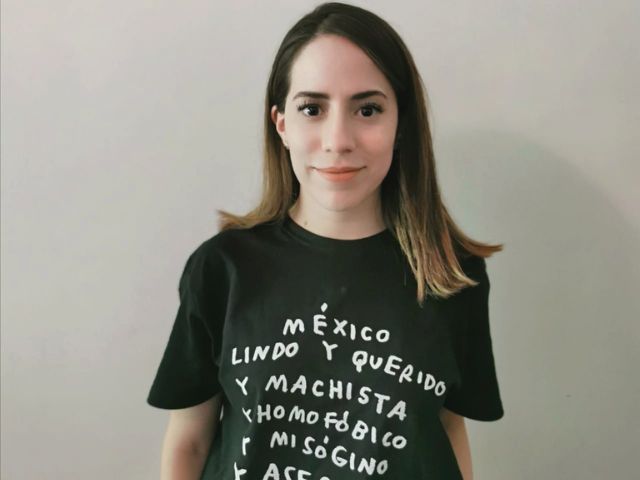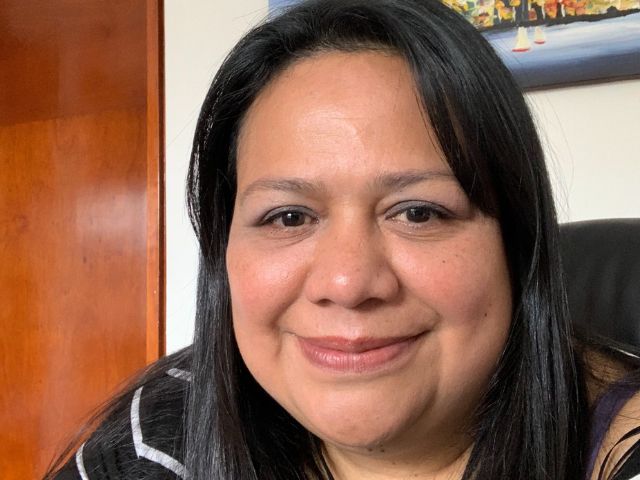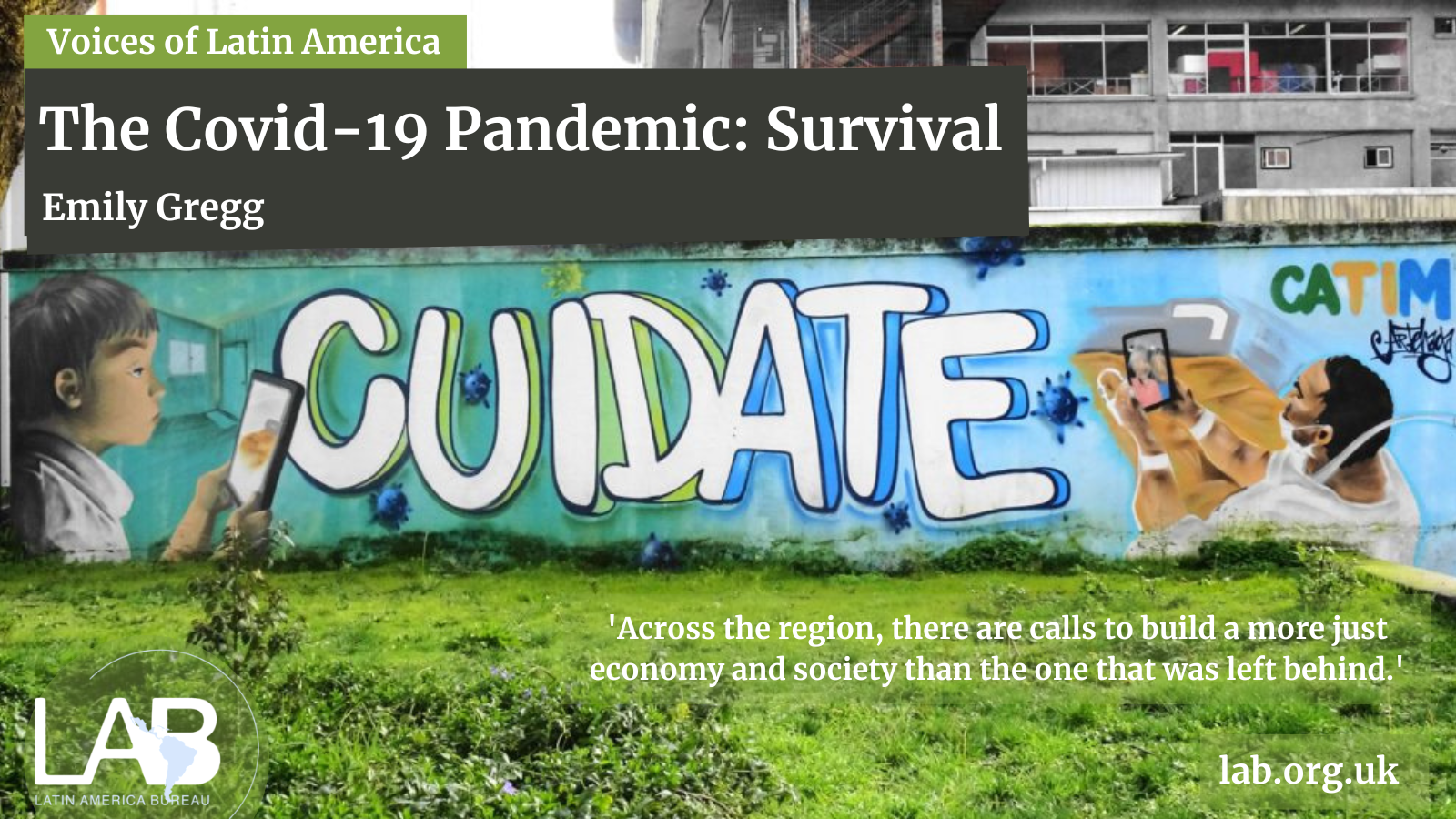
12. The Covid-19 Pandemic: Survival (virtual chapter)
Abstract
The arrival of Covid-19 in Latin America has devastated the region. Simultaneous health, economic, and humanitarian crises and catastrophic loss marked communities across Latin America as policies failed them. Authoritarianism increased; indigenous peoples faced potential decimation alongside the continuing encroachment into their territory; gender-based violence skyrocketed in quarantine; trans people became prisoners in their own homes; and children missed out on a year of education.
Despite the adversities, the Coronavirus pandemic has also shown the strength and determination of the sectors struggling for a more just society. Many of the issues they faced did not originate with the pandemic. Nonetheless, as the pandemic exacerbated many of those issues to catastrophic levels and brought others to the forefront, social leaders were determined to protect and provide for their communities. Across the region, there are calls to build a more just economy and society than the one that was left behind.
This is a virtual chapter, currently available to LAB’s Patron subscribers here. It will also be included within the next edition of the Voices of Latin America book. Elsewhere on our Voices website, you can find articles, videos, and information about LAB events linked to the COVID-19 chapter.
Index
News related to this chapter
The plunder of Bolivian gold
Brazil: pictures of a polarized diaspora
Mexico: lessons from coronavirus in Chiapas
Voz V | The Covid-19 Pandemic: Survival
A delicate moment for Cuban history
Emily Gregg is a LAB correspondent and author, and manager of the ‘Covid-19: Loss, Survival, Recovery, Transformation’ project.
Emily lived in Arica, Chile until returning to the UK due to the pandemic from where she produced a series of regional Covid updates. She is currently based in Concepción, Chile.
Emily was also author of the Student Revolution chapter in LAB’s book ‘Voices of Latin America’ (2019) and as part of her work promoting Voices, Emily organised a series of webinars in 2021. Emily has a Bachelor’s Degree in International History and a MSc in International Relations from LSE.
Interviewees
Hilda Molano Casas (COALICO – the Coalition against the Involvement of Children and Young People in the Armed Conflict in Colombia): interviewed via Zoom on 20 April 2021 by Emily Gregg. Translated by Mark Wilson.
Isabel Muñiz (CAMI Zihaukali): interviewed via Zoom on 30 June 2021 by Emily Gregg and Antonella Navarro. Translated by Fernanda Alvarez Piñeiro.
Juarez Munduruku (Sawré Muyby Village, Brazil): interviewed via Jitsi on 31 January 2021 by Nayana Fernandez. Translated by Sara Da Costa.
Lu Gilberto (Hombres Trans Feministas). Interviewed via Zoom on 5 June 2021 by Emily Gregg and Antonella Navarro. Translated by Antonella Navarro.
Marcos Angel Brito Uriana (Wayúu community, La Guajira, Colombia): interviewed via Zoom on 1 February 2021 by Tom Gatehouse. Translated by Will Huddleston.
Onésima Lienqueo (Red x la Defensa de la Infancia Mapuche): interviewed via Zoom on 14 April 2021 by Emily Gregg. Translated by Natasha Tinsley.
Paulo ‘Polinho’ Mota Medeiros Jr.(Data Labe): interviewed via WhatsApp on 25 February 2021 by Gianna Giordani. Translated by Elenice Araujo and Gianna Giordani.
Sofía Lozano Snively (Alternativas Pacíficas): interviewed via Zoom on 16 June 2021 by Emily Gregg and Antonella Navarro. Translated by Fernanda Alvarez Piñeiro.
References
Comisión Económica para América Latina y el Caribe (CEPAL) et al. (2021). The Impact of COVID-19 on Indigenous Peoples in Latin America (Abya Yala): Between Invisibility and Collective Resistance. CEPAL. Available at: https://www.cepal.org/sites/default/files/publication/files/46698/S2000893_en.pdf.
CEPAL (2021). The Pandemic in the Shadows: Femicides or Feminicides in 2020 in Latin America and the Caribbean. CEPAL. Available at: https://oig.cepal.org/es/documentos/la-pandemia-la-sombra-femicidios-o-feminicidios-ocurridos-2020-america-latina-caribe.
Comisión Interamericana de Mujeres (2020). Covid-19 en la vida de las mujeres: Razones para reconocer los impactos diferenciados. Cuaderno Jurídico y Político, Volume 6(15), pp. 97-107. Available at: https://doi.org/10.5377/cuadernojurypol.v6i15.11159.
Gielow, I. (2021). Datafolha: Maioria acha Bolsonaro desonesto, falso, incompetente, desprepardo, indeciso, autoritário e pouco inteligente. Folha de S. Paulo. Available at: www1.folha.uol.com.br/poder/2021/07/datafolha-maioria-acha-bolsonaro-desonesto-falso-incompetente-despreparado-indeciso-autoritario-e-pouco-inteligente.shtml.
Intersecta et al. (2020). The Two Pandemics: Violence Against Women in Mexico amidst COVID-19. Available at: https://equis.org.mx/wp-content/uploads/2020/08/report_thetwopandemicsF.pdf.
Islam, M. et al. (2020). COVID-19–Related Infodemic and Its Impact on Public Health: A Global Social Media Analysis. The American Journal of Tropical Medicine, Volume 103(4). Available at: https://www.ajtmh.org/view/journals/tpmd/103/4/article-p1621.xml.
Martin et al. (2020). ‘Violentadas en Cuarentena’. Distintas Latitudes. Available at: https://violentadasencuarentena.distintaslatitudes.net/actions-prevent-gender-violence/.
PROVEA (2020). Civil Rights Violations Patterns 2 Months into the State of Alarm in Venezuela. PROVEA. Available at: https://provea.org/publications/researches-and-investigations/report-civil-rights-violations-patterns-2-months-into-the-state-of-alarm-in-venezuela-1/.
Santiago Ortiz Correa, Javier, Marco Valenza, Vincenzo Placco, and Thomas Dreesen (2021). Reopening with Resilience: Lessons from Remote Learning during COVID-19 in Latin America and the Caribbean. UNICEF. Available at : https://www.unicef-irc.org/publications/pdf/Reopening-With-Resilience-Lessons-from-remote-learning-during-COVID-19-Latin-America-and-the-Caribbean.pdf.
Speedtest Global Index. ‘Venezuela’s Mobile and Broadband Internet Speeds’. Accessed 14 July 2021. https://www.speedtest.net/global-index/venezuela.
Tapia Jáuregui, Tania (2020). ¿El Pico y Género fue tan exitoso como asegura la Alcaldía? Los datos muestran otra cosa’. Cerosetenta. Available at: https://cerosetenta.uniandes.edu.co/el-pico-y-genero-fue-tan-exitoso-como-asegura-la-alcaldia-los-datos-muestran-otra-cosa/.
World Health Organisation (WHO) (2021). Fighting misinformation in the time of COVID-19, one click at a time. WHO. Available at: https://www.who.int/news-room/feature-stories/detail/fighting-misinformation-in-the-time-of-covid-19-one-click-at-a-time.
World Bank (2021). The Gradual Rise and Rapid Decline of the Middle Class in Latin America and the Caribbean. World Bank. Available at: https://openknowledge.worldbank.org/handle/10986/35834.
World Health Organisation (2021). Violence Against Women Prevalence Estimates, 2018: Global, Regional and National Prevalence Estimates for Intimate Partner Violence against Women and Global Regional Prevalence Estimates for Non-Partner Sexual Violence against Women. World Health Organisation. Available at: https://www.who.int/publications/i/item/9789240022256.
Woskie, Liana R., and Clare Wenham (2020). Do Men and Women “Lockdown” Differently? An Examination of Panama’s COVID-19 Sex-Segregated Social Distancing Policy. MedRxiv. Available at: https://doi.org/10.1101/2020.06.30.20143388.
Further reading
General:
Amnesty International. (2021) ‘Amnesty International Report 2020/21: The State of the World’s Human Rights’, Amnesty International.
Bergallo P. et al. (2021) ‘The impacts of Covid-19 on Women’s Economic Empowerment in Latin America and the Caribbean’, UNDP.
Economic Commission for Latin America and the Caribbean. (2021) ‘Pandemia provoca aumento en los niveles de pobreza sin precedentes en las últimas décadas e impacta fuertemente en la desigualdad y el empleo’, CEPAL.
Law Librarians Monitoring Covid-19. ‘Monitoring the Legal Response to COVID-19 in Latin America and the Caribbean’
López-Calva L. and Meléndez, M. (eds.). (2020) ‘The Socio-Economic Implication of the Covid-19 Pandemic: Ideas for Policy Action’, UNDP.
Palacios, L. et al. (2022) ‘Tecnologías digitales para la pandemia: ¿qué hicieron las regiones?’, Fundación Karisma.
Indigenous communities:
https://emergenciaindigena.apiboficial.org/
Economic Commission for Latin America and the Caribbean (ECLAC) et al. (2021) ‘The impact of COVID-19 on indigenous peoples in Latin America (Abya Yala): between invisibility and collective resistance’, ECLAC.
Iara Souza, G. (2020) ‘Brazil’s indigenous peoples face a triple threat from COVID-19, the dismantling of socio-environmental policies, and international inaction.’ LSE LACC.
Milhorance, F. (2021) ‘Covid deaths of Yanomami children fuel fears for Brazil’s indigenous groups.’ Guardian.
Gender-based violence:
Derechos Digitales et al. (2022) ‘Covid-19 and the increase of domestic violence against women in Latin America: A digital rights perspective’, Derechos Digitales.
Equis et al. (2020) ‘The Two Pandemics: Violence Against Women in Mexico amidst COVID-19’, Equis.
Lozano Snively, S. (2021) ‘¿Por qué no contarlo todo? 1/2’, La Traductora.
Lozano Snively, S. (2021) ‘¿Por qué no contarlo todo? 2/2’, La Traductora.
Martin, N. and Mayorga, C. (2020) ‘Abused in Lockdown’, Violentadas en Cuarentena.
Spinardi, A. et al. (2020) ‘Violence Against Women in Latin America: The Multiple Facets of a Pervasive Issue’, Data Pop Alliance.
Gendered lockdowns:
Gilberto de la Rosa, L. (2021) ‘El encierro de José’, Transcribiendo.
Glatsky, G. (2020) ‘How Covid-19 responses are endangering trans people in Latin America’, The New Humanitarain.
Majumder, I. (2020) ‘Trans People in Limbo Amidst “Pico y Generp” (Gender-Based Lockdown) in Latin America’, OpinioJuris.
Maloney, A. (2020) ‘Sex-based virus lockdowns expose gender divide in Latin America’, Reuters.
Summers, H. (2020) ‘Panama’s trans community failed by gendered lockdown measures – report’, Guardian.
Mis-information:
https://datalabe.org/tag/especialcovid/
Ceron, W. et al. (2021) ‘COVID-19 fake news diffusion across Latin America’, Social Network Analysis and Mining.
Gallón, N. (2020) ‘“There are two realities.” What is really happening in Nicaragua during the pandemic?’, CNN.
Lotta, G. et al. (2020) ‘Who is responsible for for Brazil’s Covid-19 catastrophe?’, LSE LACC.
Education:
https://redclade.org/covid-19-y-educacion/
Alcázar, B. (2020) ‘In the Peruvian Amazon, loudspeakers help remote learning continue in indigenous communities’, UNICEF.
Escalona, F. (2021) ‘660 niños afectados y 15 escuelas quemada por atentados en la macrozona sur desde 2018’, El Libero.
Ortiz Correa, J. et al. (2021) ‘Reopening with Resilience: Lessons from Remote Learning During COVID-19 – Latin America and the Caribbean’, UNICEF.
Lam, N. (2021) ‘The Digital Gap and its Impact on Colombian Education During Covid-19’, Los Diálogos Panamericanos.
World Bank and UNICEF. (2022) ‘Two Years After: Saving a Generation’, The World Bank.

